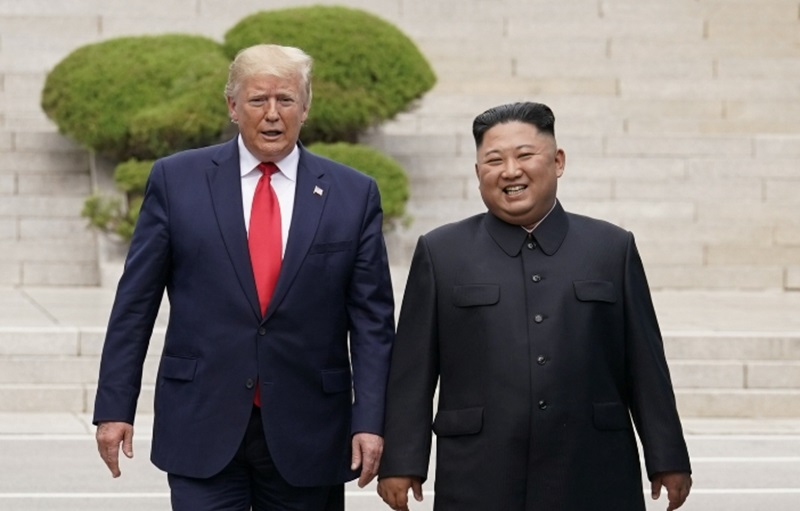North Korea has vowed to “strongly respond” after U.S. Secretary of State Marco Rubio referred to the country as a “rogue state,” marking Pyongyang’s first direct criticism of the Trump administration’s second term.
Instead of responding through a high-ranking official, North Korea issued a statement through a Foreign Ministry spokesperson, a move seen as a calculated effort to downplay Rubio’s remarks. Analysts suggest that Pyongyang is signaling its intent to maintain a “strength-for-strength” strategy, meaning if Washington continues its hardline approach, North Korea will persist in advancing its nuclear capabilities.
The Korean Central News Agency (KCNA) published a statement from the Foreign Ministry, calling Rubio’s remarks a “serious political provocation” and condemning them as “hostile rhetoric that proves Washington’s North Korea policy remains unchanged.”

“As always, we will respond with corresponding strong measures,” the spokesperson said.
Rubio made his comments during a January 30 interview. “We are facing challenges from China and, to some extent, Russia, while also dealing with rogue states like Iran and North Korea,” said Rubio.
Despite President Donald Trump repeatedly expressing willingness to reengage with Kim Jong-un, North Korea has responded by publicly revealing a new uranium enrichment facility, a move widely interpreted as an attempt to increase its leverage in future negotiations.
North Korea’s latest statement demonstrates its heightened focus on the Trump administration, according to experts.
“This response makes it clear that Pyongyang is closely watching every move made by Trump’s second-term administration,” said Lim Eul-chul, a professor at Kyungnam University’s Institute for Far Eastern Studies. “It also reflects Kim Jong Un’s deep-seated distrust of Washington,” Lim added.
Pyongyang also reacted strongly to Trump’s recent push to expand the U.S. missile defense system.
In a Rodong Sinmun commentary released by the Foreign Ministry’s Institute for Disarmament and Peace, North Korea accused the U.S. of fueling an arms race.
“The U.S. is escalating its military deployments, and it is evident that these moves will further heighten tensions,” the statement read. “We will respond to the increasing military threats from hostile forces with unlimited military expansion,” it concluded.
According to experts, Pyongyang may push for the suspension or modification of joint U.S.-South Korea military exercises as a precondition for resuming dialogue with Washington.
“Given the current situation, North Korea is likely to insist on halting or scaling down U.S.-South Korea joint drills as a key condition for any negotiations,” said Lim. “Additionally, South Korea’s domestic political instability, including impeachment proceedings, could play a significant role in shaping the timeline for any future North Korea-U.S. summit,” Lim noted.
On January 28, President Trump signed an executive order directing the U.S. military to develop a missile defense system similar to Israel’s Iron Dome to intercept incoming rocket attacks.
BY YOUNGNAM KIM [kim.youngnam@koreadaily.com]
- Advertisement -




